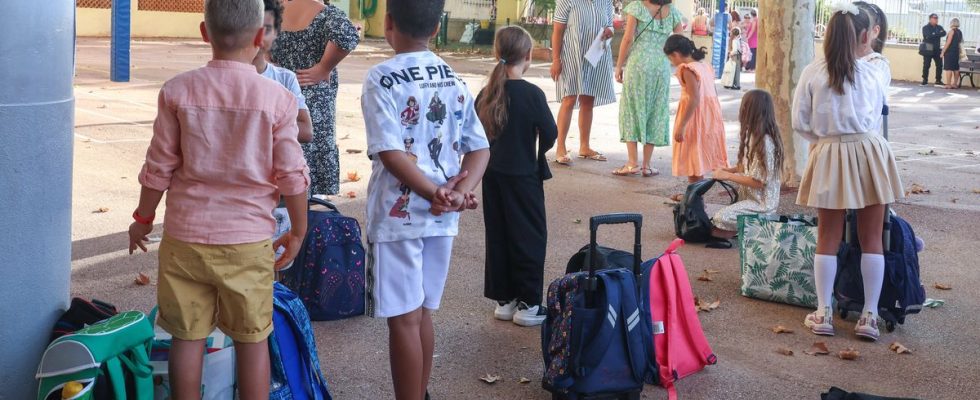This is a device that is far from unanimously supported by teachers. Launched at the start of the school year, the pact allows volunteer teachers to engage in new missions in exchange for remuneration. In October, the Minister of Education, Gabriel Attal, announced that 25% of teachers had signed it. But it is still criticized by unions, who denounce the fact that these missions are added to the service time of teachers, while they demanded salary increases without compensation. If most of the heads of establishments were content to inform their teams of the operation of this pact, others seem to have encouraged them, according to Sophie Venetitay, general secretary of SNES-FSU.
“We know that in certain places, there is blackmail of the pact: if the teacher does not sign it, he will not be able to organize school trips,” she denounces. What Christine confirms: “Our establishment has not signed enough pacts, no project or exit is possible to date,” she responds to our call for witnesses. A situation also experienced by Fatiha, SVT teacher: “Last year, I led a science club one day of the week during the lunch break. It was a success, the students asked me for more hours at the end of the year. This year, unfortunately, I can no longer host it because I have to sign a pact to continue. And I don’t intend to. It’s a form of blackmail. The students lose out, what a shame! “, she laments.
Some pact candidates remain on the sidelines
Conversely, other teachers would like to get involved but cannot. Like Dominique, a CM2 teacher in Catholic education. “Certain missions are taken under pact and others, carried out each year, are not pactable, such as the organization, the management of discovery classes… These hours are therefore not paid and this creates a lot of tension”. In some establishments, many teachers volunteer to carry out additional missions. Which forces the head of the establishment to make a choice, with disappointments as a result. “Some pacts go to people who had referent missions that already existed, and who were previously unpaid. I would have liked to take these missions but I did not have the right to the pact. On the other hand, I am regularly asked for additional unpaid tasks… as usual! », deplores Juliette, a school teacher in the audience.
A feeling of injustice also felt by Anna, a Spanish teacher in the private sector: “Everything was done behind the scenes, with certain teachers receiving three missions while others were unable to obtain a single one, despite their enormous investment. We work more, we do lots of projects, but we don’t have the right to a pact because we’re not in the good books. As for school stays and outings, there too, it is a huge scandal: the director granted pacts to certain teachers accompanying only during the stay, while he refused them to teachers organizing the entire stay. Disparities which only caused tension within the team. »
The signatories, looked askance
And between the pro pact and the cons, the system creates a stir. As Stéphane testifies: “When I see certain colleagues accumulating seven or eight missions, I find it unhealthy, unfair. This further degrades the training of students, because by signing this pact, it means less preparation time for our basic profession. »
Some teachers who have volunteered for these new missions fear being looked at askance by their colleagues, and remain very discreet on the subject. Korine, a school teacher, on the contrary, laid her cards on the table and attracted the wrath of her colleagues. “I signed the pact for increased support in my school. Four colleagues literally came upon me, believing that I didn’t understand anything, that I shouldn’t get involved in the system. And that in any case, they would not let me do it and would not entrust me with a student… even in difficulty,” she says.
Pay differences that annoy
A feeling of unfairness also exists among teachers who work overtime hours that are less well paid than the hours worked within the framework of the pact, as Natacha points out: “A part-time colleague (80%) signed a pact to work short-term replacement. He earns more for these overtime hours than colleagues who are required to work 2 overtime hours on top of their 18 hours of class. We find the system deeply unfair. »
So many testimonies which show that school leaders will have work to rebuild links within teams in the coming months.

